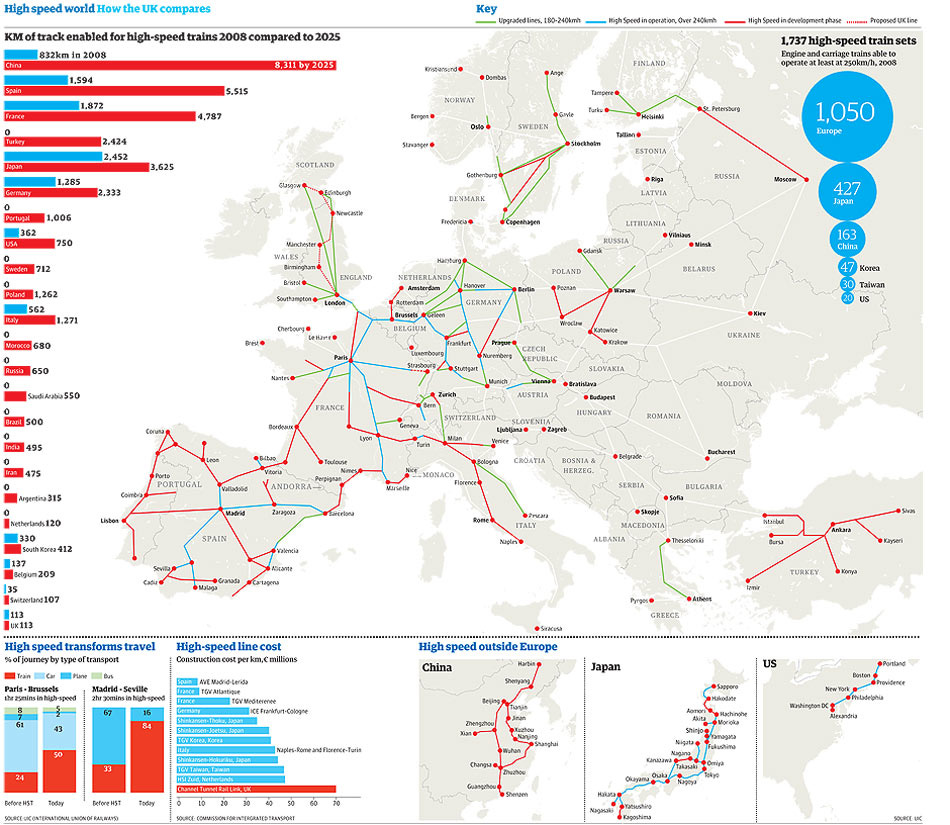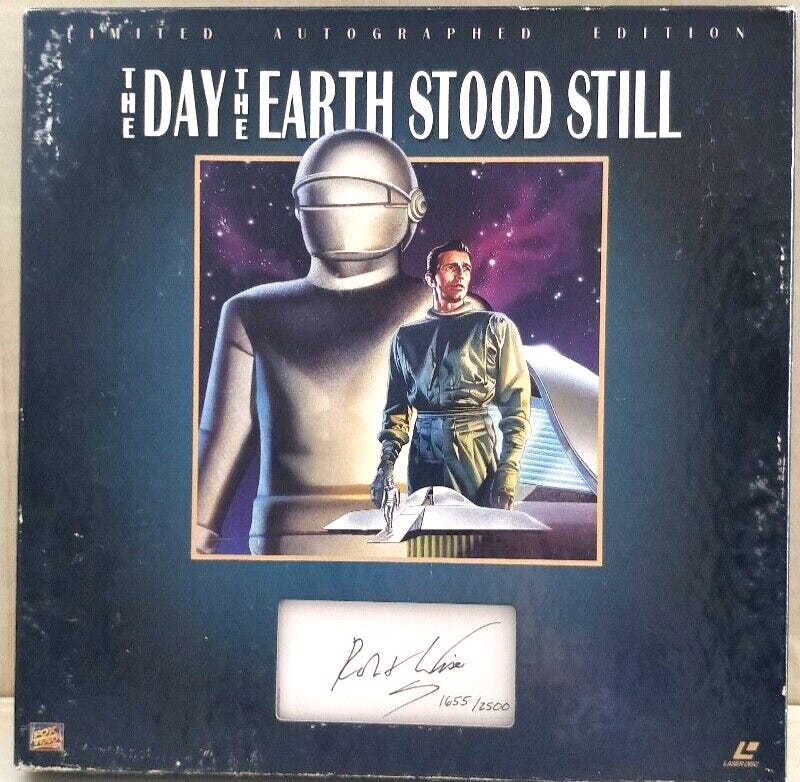By Thomas Neuburger. Originally published at God’s Spies
High-speed rail in Japan. Max speed: 374 mph.
Two elements to wrap your head around. They connect, as you’ll see.
Life Without Air Travel
The first is a speculation on what it would mean to be without air travel entirely. The source is here from the BBC: “What would a flying-free world look like?”
Some background:
Aviation has long been a pain in the neck for those working to cut human-caused greenhouse gas emissions. It is the pinnacle of a “hard-to-decarbonise” sector: energy-intensive, lacking in immediate technical options to make it lower carbon, and strongly associated with the lifestyles of the richest and most powerful in society.
It has also become one of the fastest growing sectors emissions-wise. Carbon dioxide (CO2) emissions from planes grew 30% between 2013 and 2019 while the CO2 emissions growth in the wider economy between the same years was just 4%.
And some of their conclusions:
- It would end the carbon pollution of a polluting sector. “Grounding all flights on Earth would immediately put a stop to the 2.5% (and growing) of annual CO2 emissions which come from burning fuel in aeroplanes, cutting CO2 emissions by around one billion tonnes per year and eliminating a sector previously leading to rising emissions.”
- It would end contrails which have an outsized warming effect. “Unlike CO2, which stays in the atmosphere for centuries, these non-CO2 emissions have a short-term, but very strong, warming impact which has been estimated aspotentially tripling the overall warming effect of aviation compared to CO2 alone.”
- “Many people’s daily lives would be unaffected, at least directly. Just 11% of the global population took a flight in 2018 and at most 4% took an international flight.”
- Countries and people dependent on tourism would be hard hit, “especially islands heavily dependent on tourism and largely only accessible by plane. The huge decline in travellers in 2020 [he first pandemic year] put over 100 million tourism jobs in jeopardy: many would be permanently lost.”
- While most goods aren’t shipped by air, many high-value or perishable goods are. “Food air freight would also require adjustment. The 47,000 tonnes of fresh or chilled fish flown from London Heathrow airport each year, for example, would need to be delivered frozen if going by ship. Highly perishable fresh fruits and vegetables like grapes, mangoes and avocados would disappear from supermarkets in the winter, with a rise in the consumption of frozen fruits instead. The availability of flowers grown overseas would plummet.”
- Humanitarian aid would be at risk. “Air freight is used to ship medical supplies and pharmaceuticals around the world. It played a major role in delivering vaccines during the pandemic, for example. It is also used during humanitarian disasters to deliver food, water and medicines.”
- High-speed rail would become an immediate priority.
High-Speed Rail Around the World
Consider the last point above: High-speed rail would become an immediate priority.
Here’s the buildout of high-speed rail worldwide in 2016 (blue) and projected for 2025 (red), source The Guardian. Most of that projected track has been laid already; China is now far in the lead.

The U.S. claims to have high-speed rail, but barely. Regarding the Acela (lower right on the graphic):
Acela trains are the fastest in the Americas, reaching 150 miles per hour (240 km/h) (qualifying as high-speed rail), but only over 49.9 miles (80.3 km) of the 457-mile (735 km) route.
Fifty miles of low-speed high-speed rail. And holding. Go us.
Not Going to Happen…
The second element in today’s piece is this: Once you start to think about high-speed rail replacing air travel, you begin to see a larger problem. In fact, a very large problem. In the U.S., nothing that challenges modern industrial life is going to change till circumstance (meaning, collapse) forces it to.
Futurist Marshall Brain (yes, that’s his name) has considered this issue at least twice. Once in a Doomsday article (here), and once in a Spacemen-can-save us article (here).
In the Doomsday article, he generously ascribes the failure of our leaders to their great concern for our welfare and lives:
“If planet Earth stopped burning fossil fuels today, what would happen?”
The answer is just as simple: The effects would be profound, and billions of people would die within a year. Why?
• Modern agriculture would come to a dead stop. Nearly every tractor in the world, and every combine harvester, is powered by fossil fuels. Without fossil fuels there would be no plowing, no planting, no cultivating, no harvesting. Therefore, there would be no food for people to eat and billions would starve to death.
• Modern transportation would come to a dead stop. Even if there were food, it moves around a country like the United States in diesel trucks and diesel trains and diesel ships. Without fossil fuels, all these vehicles stop moving and we all starve to death.
• Modern electricity grids would come to a complete stop. More than half of the electricity in the United States comes from fossil fuels like natural gas.
• Modern factories would come to a complete stop. Factories need electricity and fossil fuels to power their operations, and they need trucks and trains to bring in the raw materials for the factories to digest.
Without these four essentials, modern society collapses. They all require fossil fuels.
And:
Can we wean all these sectors off fossil fuels? Yes, of course. But it will take decades even if we ignore all the power wielded by the incumbent fossil fuel companies and their lackeys. What if we saw a headline tomorrow that said, “World leaders allocate $10 trillion to rapidly decarbonize all of global agriculture, transportation and electricity generation in 5 years.”? We will never see this headline. There is no group of world leaders thinking in this way. World leaders are not on the verge of allocating this kind of money. Nor are world leaders even contemplating such an allocation.
Modern economies will be burning fossil fuels, and therefore adding gigatons of carbon dioxide to the atmosphere, for many decades to come. History shows us that this is what will happen. Modern economies will do this because there is no near-term alternative to fossil fuels that does not involve spending trillions of dollars to speed things up. Because world leaders don’t want their people to starve and die, fossil fuel consumption will continue largely unabated.
I admire his generosity, his unwarranted assumption of billionaire concern, but still, he makes a good point. The obvious solution is Plato’s benevolent dictator, what Plato calls the “philosopher king.” But who would that be?
…Unless the Aliens Step In
Obviously, we won’t get a philosopher king anytime soon, not from among ourselves. We’ll have dictators aplenty, though none benevolent, and none with sufficient power.
Which leads to his brilliant, fantastic solution — aliens from space who literally want only our good. What would they do to solve our problems for us?

First, how did these benevolent aliens gain control? The writer gives them great power.
The first act of the Sleeborans [the aliens] was apparently to neuter the planet’s military forces in every country. Every nuclear missile silo and transporter was mysteriously disabled. Every military submarine and warship lost the ability to move or fire its weapons. Every military jet, helicopter, tank or transport was disabled and grounded.
The second act for the Sleeborans was to meet with every high government official and corporate leader on the planet. Apparently the Sleeborans had transporter rooms like the ones in Star Trek, because a Sleeboran robot, according to news reports, appeared in the office or home of thousands of important and wealthy people across the planet. …
The third act was for the Sleeborans to deploy millions of robots across the planet in every population center, from small towns to major cities. There appeared to be approximately one robot per 100 people. These robots appeared to do nothing unless they detected anger or violence or what might be thought of as criminal or rude behavior – things like theft, vandalism, racism, misogyny. The robot would appear on the scene and the angry or violent or criminal person would vanish in a brief flash of light. No one knew where they went. [They are later revealed to be safe.] Word quickly spread on the Internet, and people quickly recognized, that anger and violence and crime were unacceptable to the Sleeborans. Therefore, these activities quickly subsided, either through attrition of the perpetrators or lessons learned.
What’s the Sleeboran solution to humanity’s ills?
The Sleeborans noted four important trends that had triggered their arrival on Earth:
- The growing threat of global war and nuclear war, and in particular the war in Ukraine.
- The unmanaged threat of climate change, where Earth was about to reach irreversible tipping points.
- The extreme economic inequalities that were growing without restraint.
- The proliferation of crime and corruption and general asshole behavior, especially within governments, which was making the planet’s decent people miserable with no corresponding benefit.
Their Solution to Unequal Wealth
As an example of Sleeboran solutions, consider wealth inequality. After noting that “a small percentage of humans have the means to purchase a $1,000 smart phone, while those assembling the phones often received only pennies in return for an hour of their labor,” a situation they called “irrational, cruel and immoral,” the Sleeborans did this:
Therefore, the wealthy would be stripped of their assets and wealth, down to the level of a normal standard of living. And the poor would all be raised up to the same standard of living. This standard of living would be defined by the healthy carrying capacity of the planet.
Under the rules of capitalism, it was perfectly normal for a person to start a successful company, hire a million employees, and for the one person to amass $100 billion using the work of those employees to do it. To the Sleeborans, the notion of extreme wealth like this was abhorrent. Why not instead give $100,000 to each employee? Or lower prices so that the $100 billion never accumulated? The whole notion was ridiculous to the Sleeborans and would be dismantled quickly. The era of 300-foot-long yachts and private jets and 12 mansions on 5 different continents was gone forever under the Sleeborans.
The rest of their solutions follow similar lines.
The Fantasy Tells the Truth
The problem with this fantasy is that it’s true — in a very specific way:
[T]he Sleeborans did the things that every thoughtful person knew had to be done. They destroyed the threat of nuclear annihilation. They eliminated all the assholes who were ruining society for everyone else. They made the hard decisions on climate change and then acted impressively. They brought everyone in the human species up to the same standard of living, rather than tolerating the amazing inequalities that had been the norm for so long. They eliminated the hyper rich and their absurdities. The world was becoming a much better place.
What the truth does this contains? Every thoughtful person knows these things have to be done.
Why the coming collapse? No thoughtful person thinks these things could happen. Not in the quantity needed. Not in time.
Back to the Future
We started with air travel and high-speed rail. We’ll end there as well.
In the U.S., how many miles of high-speed rail will be built, beyond the less-than-a-hundred it already has, by … let’s say, the end of your life? How much less than what’s needed will that number be?
In the meantime, global warming is speeding up. It’s easy to do the math. I’m with the Sleeborans.


